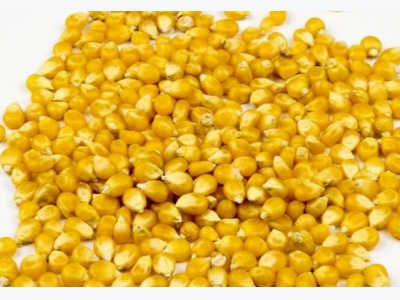Vitamin E discovery in maize could lead to more nutritious crop

enriscapes/iStock/Thinkstock
Along with antioxidant properties, tocochromanols have been associated with good heart health in people.
New research has identified genes that control vitamin E content in maize grain -- a finding that could lead to improving the nutritional profile of this staple crop.
Cornell University scientists and colleagues from other institutions combined different types of genetic association analyses to identify 14 genes across the genome that were involved in the synthesis of vitamin E. Six genes were newly discovered to encode proteins that contribute to a class of antioxidant compounds called tocochromanols, collectively known as vitamin E.
Along with antioxidant properties, tocochromanols have been associated with good heart health in humans and proper functioning in plants, the researchers said.
“We have established a near-complete foundation for the genetic improvement of vitamin E in grain of maize and other major cereals,” said Michael Gore, associate professor of plant breeding and genetics at Cornell and a co-corresponding author of the study published in The Plant Cell.
“There has been talk, among breeders working to increase provitamin A in maize, that we could increase vitamin E at the same time,” said Christine Diepenbrock, a graduate student in Gore’s lab and first author of the paper. “They are related compounds biochemically, and tocochromanols are essential for seed viability in that they prevent seed oils from going rancid throughout seed storage, germination and early seedling development.”
The other co-corresponding authors are Dean DellaPenna, professor of biochemistry and molecular biology at Michigan State University, and Edward Buckler, research geneticist at the U.S. Department of Agriculture's Agricultural Research Service and adjunct professor of plant breeding and genetics at the Institute for Genomic Diversity in Cornell’s Institute of Biotechnology.
Related news
 Salicylic acid and its positive effect in hydroponics
Salicylic acid and its positive effect in hydroponics Salicylic acid is a simple organic molecule with the structure showed above. Salicylic acid and its positive effect in hydroponics
 Five ways to increase your seed germination rates
Five ways to increase your seed germination rates When you start plants from seeds one of the most important things you want to achieve is a very high and fast germination rate.
 Iron Sources in Hydroponics : Which One is the Best ?
Iron Sources in Hydroponics : Which One is the Best ? Definitely one of the most important problems dealing with the stability of hydroponic solutions is the availability of the iron (Fe+2 or Fe+3) ions.